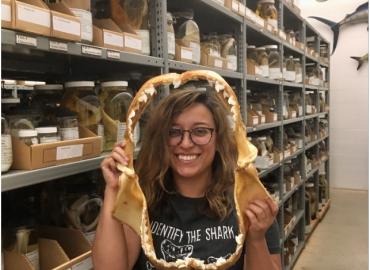Wearable devices, such as smartwatches, are appreciated by many for their ability to improve a person's well-being and fitness, but you might not expect that similar technology can be incredibly useful in learning about animal life and behaviour. To make sense of data logged by technological devices and build a bridge between statisticians, ecologists and medical researchers is the motivation for a new collaborative project, co-led by Vianey Leos Barajas, assistant professor at the Department of Statistical Sciences.

To support Leos Barajas research at the intersection of statistics, ecology and medicine, the Canadian Statistical Sciences Institute (CANSSI) has awarded her a Collaborative Research Team (CRT) grant, which includes $210,000 in funding.
The CRT grant is especially noteworthy for its collaborative and interdisciplinary support and aims to promote fundamental research in statistics and data science with interdisciplinary collaboration.
From April 2022 to March 2025, the project will focus on developing statistical methods and applying them to “biologging data”, which can hold important insights into what’s happening in or around an animal or person. An example of biologging in ecology would be monitoring animal behaviour using GPS collars, and a similar example in medicine is a consumer wearable device that tracks exercise or sleeping patterns.
Even though biologging is common in both ecology and medicine – and studies in these fields often share common goals and challenges – ecological and medical researchers are often siloed. Leos Barajas, who is passionate about collaboration, believes strongly in opportunities to join forces with experts in other fields, as a way to advance research that benefits everyone: “By creating this bridge, we will advance statistical sciences, spur interdisciplinary research, and enhance the well-being of humans and animals alike.” The collaborative project will include collaboration between university researchers across Canada, as well as industry and government partners such as Fisheries and Oceans Canada.
Leos Barajas will co-lead the project with University of British Columbia (UBC) Assistant Professor Dr. Marie Auger-Méthé. The team will also hire four PhD students and two Master’s students from across Canada to support the project.
“I'm really looking forward to creating an incredible research group composed of people across government, industry and academic institutions, as well as bringing researchers from medicine and ecology together. This would not have been possible without the CRT grant,” says Leos Barajas.


